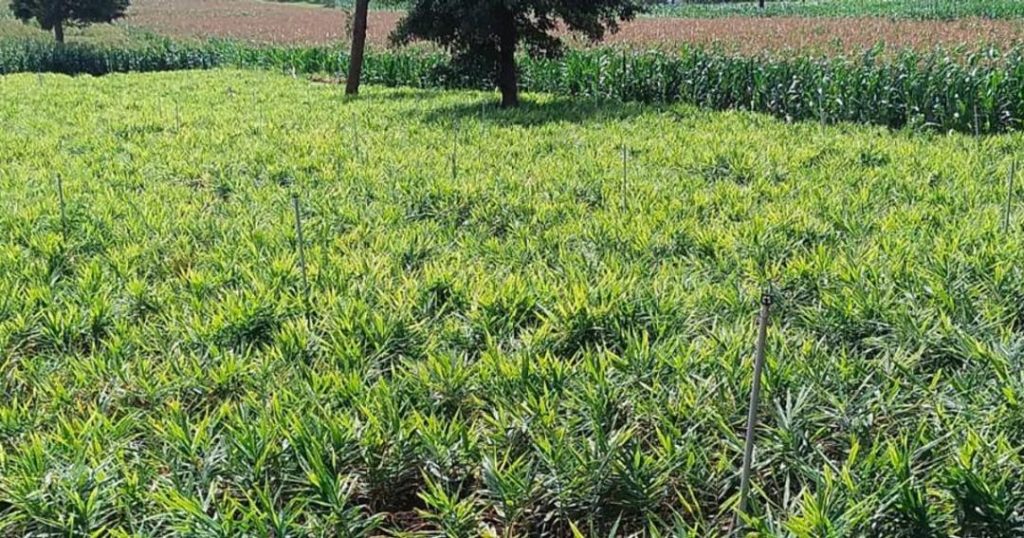
ICAR Detects New Fungal Disease in Kodagu’s Growing Ginger Crops
Ginger farming has become a lucrative venture in Kodagu’s northern regions, with many farmers opting for this lucrative crop. However, the recent discovery of a new fungal disease affecting ginger crops in the region has left farmers and researchers alike concerned. The Indian Council of Agricultural Research (ICAR) has identified the disease, which is spreading rapidly, and experts are urging immediate action to prevent further damage.
According to a recent report by ICAR, the new fungal disease is affecting ginger crops in Kodagu district, which is known for its high-quality ginger production. The disease causes black-green spots to appear on the leaves, followed by yellowing, and can lead to significant losses for farmers.
The news of the fungal disease has sent shockwaves through the ginger farming community in Kodagu, with many farmers expressing concern about the impact it could have on their livelihoods. “Ginger farming is a significant source of income for us, and the thought of losing our crops is devastating,” said Ramesh, a ginger farmer from Madikeri.
The ICAR team has been working tirelessly to understand the disease and develop a treatment plan. According to Dr. Suresh, a leading researcher at ICAR, “The disease is caused by a fungal pathogen that infects the ginger rhizomes, causing them to rot and leading to reduced yields and lower quality produce.”
To combat the disease, experts recommend treating seed rhizomes with fungicides like Propiconazole or a mix of Carbendazim and Mancozeb. This involves soaking the seed rhizomes in the fungicide solution for 30 minutes before storage. “This treatment helps prevent the spread of the disease and ensures healthy growth of the ginger plants,” explained Dr. Suresh.
Immediate action is essential when spotting early symptoms like black-green spots and yellowing leaves. Farmers should inspect their crops regularly and take prompt action if they notice any signs of the disease. “Early detection and treatment can significantly reduce the impact of the disease,” emphasized Dr. Suresh.
The ICAR team is also working on developing a specific treatment plan for the disease, which will be made available to farmers in the coming weeks. “We are committed to supporting our farmers and finding a solution to this problem,” said a spokesperson from ICAR.
In the meantime, farmers are being advised to take precautions to prevent the spread of the disease. This includes ensuring good air circulation, removing weeds, and maintaining proper sanitation in the farm. “By taking these precautions, farmers can reduce the risk of infection and protect their crops,” said Dr. Suresh.
The discovery of the new fungal disease is a wake-up call for the ginger farming community in Kodagu. It highlights the importance of regular monitoring and research to stay ahead of emerging threats to crop production. As the ICAR team continues to work on finding a solution to this problem, farmers are urged to remain vigilant and take immediate action if they notice any signs of the disease.
In conclusion, the detection of a new fungal disease in Kodagu’s growing ginger crops is a significant concern, but with prompt action and the right treatment plan, farmers can minimize the impact and protect their crops. By staying informed and taking proactive steps, the ginger farming community in Kodagu can overcome this challenge and continue to thrive.






